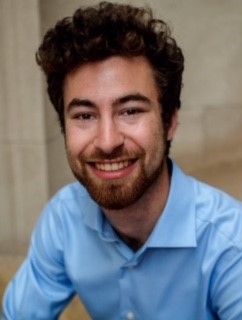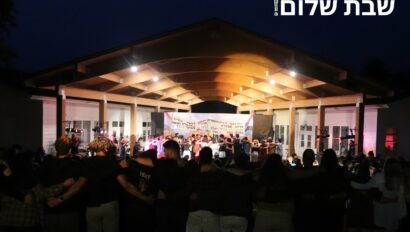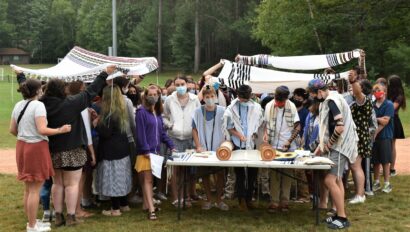Please enjoy a d’var Torah this week by Rosh Garinim and Halutzim 2018 Avidan Halivni. Avidan is excited to return to camp for his eleventh summer, and his fourth on staff! Originally from Deerfield, Illinois, Avidan is a junior at Columbia University where he is majoring in Religion with a minor in History. He is a fellow in The Nachshon Project’s fourth cohort, and he once bargained the price of a little goat from 5 zuzim down to 2.
Develop Your Story: Reflections on Parashat Bemidbar
by Avidan Halivni
Going to camp, whether it’s your first summer or your tenth, can sometimes feel like stepping into the wilderness. Each camper arrives in Conover full of excitement for what may lie ahead, and equally bursting with questions about the uncertain elements of the Ramah experience. What time do we get to go swimming? Am I going to like what we eat for dinner? Did I pack enough differently colored t-shirts to fill an artist’s palette, for every conceivable Yom Sport or tzrif (cabin) gimmick?
More importantly than the what questions are the who questions — the queries regarding bunkmates, counselors, siblings and cousins, friends new and old. The gleeful pandemonium of the first few days of camp is largely about taking stock of the wonderful people that comprise the camp environment that year, scheming and dreaming together of what the summer holds in store.
Like the excited madrichim (counselors) who bring their tzrif together on the first night of camp, Moses eagerly takes role of the tribes of Israel as they embark on their journey away from Mount Sinai. The list of chieftains of these tribes that Parashat Bemidbar recounts sounds a whole lot like reading off a bunk list of chanichim (campers), taking care to mention their first name, their family name, and the name of their household. “From the tribe of Reuben, Elitzur son of Shede’ur; from the tribe of Simon, Shelumiel son of Tzurishaddai; from the tribe of Judah, Nachshon son of Amminadav… Hannah from the tribe of Minnesota; Noah from the tribe of Chicago; Maya from the tribe of Omaha…”
Hearing one’s name on the list is exhilarating and intimidating. Each summer, we come to camp bearing only these formal details, and nothing more. Seemingly to illustrate this point, the traditional commentators offer no insight into the lives of these chieftains from these verses, neither backstory nor personality for these fledgling leaders. Camp challenges and enables us to develop our own midrashim (interpretations) on our names and on ourselves, aided by our madrichim, rashei aidah (division heads), and lifelong friends, as we move further and further into our journey.
This parashah, more than any other, is the beginning of my story. The very name I have carried for almost twenty-two years appears for the first time in this list of tribal leaders: Avidan son of Gidoni, the chieftain of Benjamin. I am proud to admit that camp, too, more than any other place, was the beginning of my story. Ramah is where I learned to lead, to listen, to question, to explore, to laugh, and to cry. It is a place where I took the name that I was given and turned it into one that reflects who I am at my core, and which inspired me to return for my eleventh summer at camp, and fourth on staff, to help others do the same.
The conclusion of Moses’ census in Parashat Bemidbar is that after each tribe of Israel is carefully counted, the parashah relates that they “camped according to their flags, and so they marched, each with his clan according to his ancestral house” (Numbers 2:34). The twelve tribes of Israel, each waving their flags of unique qualities, ultimately all camp together. The real beauty of the Ramah experience is that, at the same time the chanichim are figuring out their own names, they are also learning how to camp together: how to coexist in a tzrif setting, find themselves as part of a larger aidah (division), and carve out a place in the overall camp community. After a summer dedicated to that pursuit, the first day jitters give way to a greater understanding of oneself and one’s peers, and, with that, a greater confidence to journey forward — together — into whatever may lie ahead.






